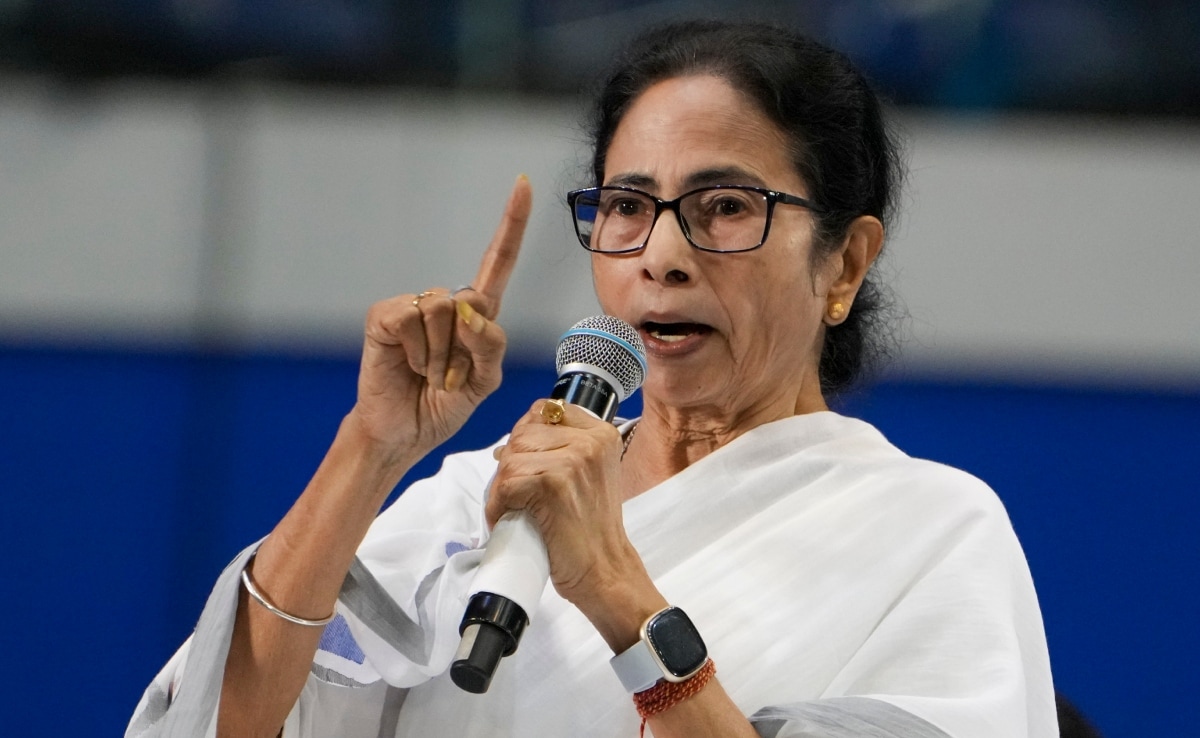Chief Minister Mamata Banerjee Stands Firm Against Waqf Act Implementation
In a bold declaration on Wednesday, West Bengal’s Chief Minister, Mamata Banerjee, affirmed that the recently passed Waqf (Amendment) Act will not be implemented in the state. This announcement came during a gathering of the Jain community in Kolkata, where she emphasized her commitment to protecting minority rights and safeguarding their properties. Banerjee’s statement comes against a backdrop of ongoing political discourse surrounding the Waqf Act, which has sparked significant controversy.
The Waqf (Amendment) Act, which aims to amend existing laws related to the management of properties dedicated to religious and charitable purposes, was passed by both houses of the Parliament after extensive debates. The Lok Sabha approved the bill on a Thursday, and the Rajya Sabha followed suit in the early hours of Friday. The bill received presidential assent the following Saturday, marking its official passage into law. However, Chief Minister Banerjee’s outright rejection of this legislation highlights the ongoing political divide, particularly concerning issues that affect minority communities.
According to Banerjee, her administration will remain vigilant against any attempts to “divide and rule,” a phrase she used during her speech. She also referenced the complicated political climate in Bangladesh as an example of the consequences that can arise from divisive policies. Her remarks have resonated with many in her constituency, particularly among minority groups who feel threatened by recent legislative changes.
The Implications of Banerjee’s Decision
Banerjee’s stance against the Waqf Act has potential implications for governance and community relations in West Bengal. The Chief Minister expressed a clear intent to prevent any legislation that might infringe upon the rights and properties of minority communities. The Waqf Act, which has drawn criticism for its implications on property management and religious institutions, is viewed by some as a tool that could lead to communal tensions.
In her address, Banerjee reassured attendees that her government prioritizes harmony and respect among various communities. “I know you are aggrieved because of the enactment of the Waqf Act. Have faith, nothing will happen in Bengal by which one can divide and rule,” she stated, aiming to alleviate concerns from minority groups and underscoring her commitment to inclusivity.
The Waqf (Amendment) Bill’s journey through Parliament reflects broader national tensions, where communities often feel underrepresented and vulnerable. By directly confronting the bill’s implications, Banerjee is positioning herself as a defender of minority rights, potentially appealing to a broader electorate who prioritize social unity.
Political Reactions and Future Prospects
The political landscape in West Bengal is evolving rapidly as various factions assess the implications of Banerjee’s rejection of the Waqf Act. Political analysts suggest that this move could either enhance her reputation among minority communities or create further division among political parties in the state. The Chief Minister’s proactive approach may resonate positively with her base but could also provoke backlash from opposing parties who advocate for the national legislation.
As per the report by NDTV, Banerjee’s refusal to implement the Waqf Act has sparked discussions among political analysts about its feasibility in West Bengal. The state’s history of political resistance and community dynamics plays a significant role in how such legislation is perceived and enacted. Observers are keen to see how local governance will navigate these waters in the face of national policy.
Community Perspectives on the Matter
Local communities have begun voicing their opinions on Banerjee’s announcement. Members from various minority groups have expressed relief at her stance, viewing it as a protective measure against potential injustices. Many community leaders shared their belief that the Chief Minister is prioritizing their needs amid a more extensive plan for social cohesion.
Some community leaders even plan to mobilize support for Banerjee, framing her stance against the Waqf Act as a critical factor in the upcoming elections. The Chief Minister’s outreach to minority communities, especially the Jains and Muslims, indicates an understanding of the delicate balance required in a state known for its diverse population.
The dialogue surrounding the Waqf Act also raises questions about the role of state governance in interpreting national laws. Observers have noted that West Bengal may serve as a case study for other states grappling with similar legislation. The nuances involved in balancing local needs against national directives will likely become a focal point in future discussions.
Understanding the Waqf Act’s Significance
The Waqf (Amendment) Act aims to allow for better management of Waqf properties, with provisions designed to enhance transparency and accountability. Supporters argue that the Act is necessary for reforming the management of these properties, which often fall into disrepair amid bureaucratic hurdles. However, detractors, including Banerjee, argue that the act could lead to potential abuses and exacerbate already existing communal tensions.
It is essential to consider how Banerjee’s administration will navigate the complexities of this new legislative landscape. By rejecting the Act, the West Bengal government signals a move towards local governance that prioritizes the voices of its constituents, especially minority communities.
The potential outcomes of this decision remain to be seen as state officials prepare to align or diverge from national mandates. As discussions unfold, stakeholders will need to keep a close eye on developments and community reactions, ensuring that the push for reform aligns with the values of inclusion and respect that Banerjee advocates.
For further insights into the implications of the Waqf (Amendment) Act, check out our article on the implications of the Act for minority communities. Additionally, to understand more about the political landscape in West Bengal, visit our feature on West Bengal’s political dynamics.
By standing firm against the implementation of the Waqf Act, Mamata Banerjee is positioning herself as a protector of minority rights in West Bengal, a stance likely to influence the state’s political climate significantly.
DISCLAIMER
We have taken every measure to ensure that the information in this article and on our social media platforms is accurate, verified, and obtained from reliable sources. For feedback or complaints, please contact us at info@hamslive.com.


